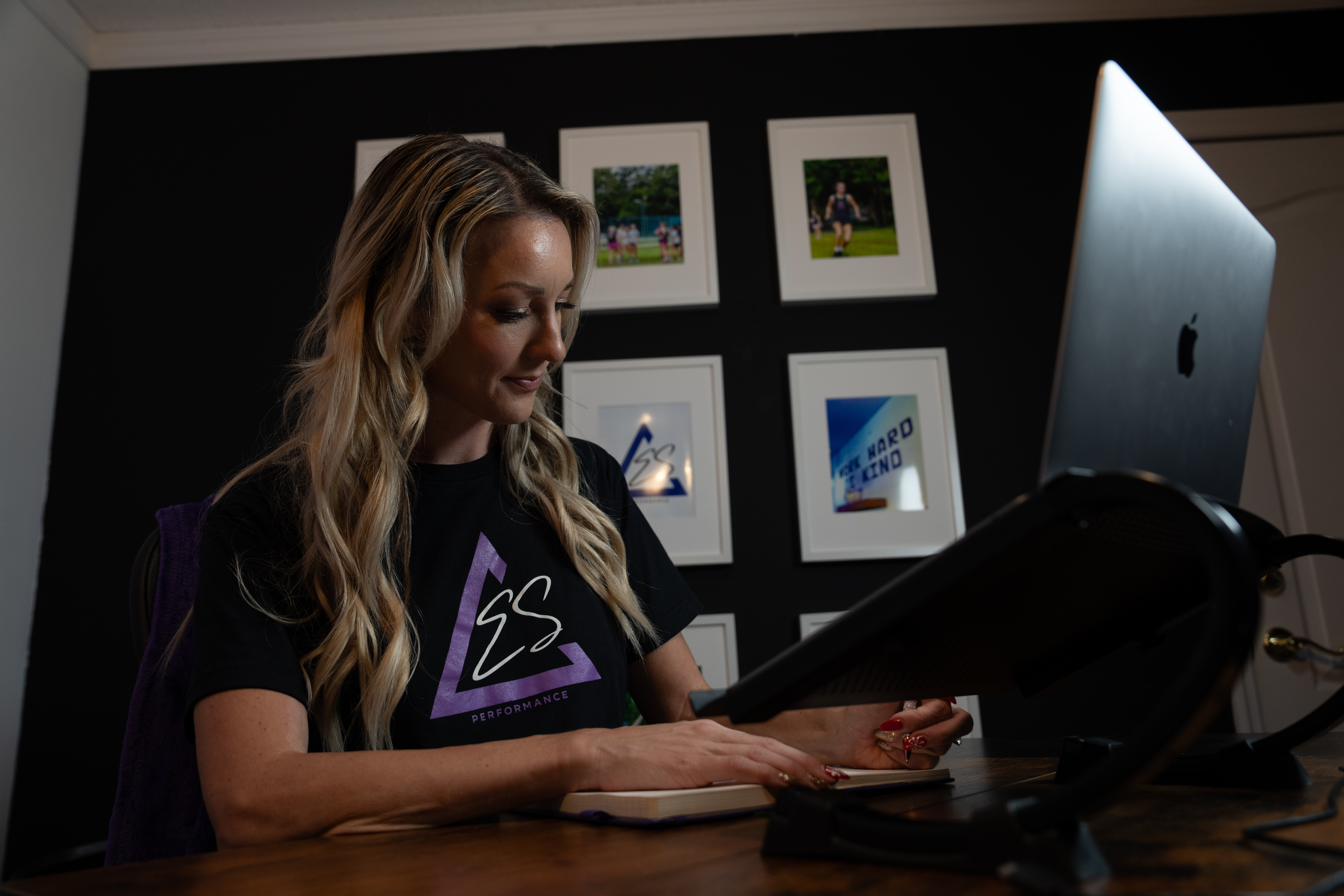
12 Jan Why I’m Not On Social Media Every Day (Advice for Female Athletes and Youth Sports Parents)
In 2020, I deleted my Snapchat.
Annoyed by the constant snaps of my friends’ Starbucks orders, sushi boat dinners, abroad travels, morning routines, hair appointments, mirror selfies, pedicures, and all things that documented their day-to-day, I decided to cut the chord and delete the app once and for all.
And this wasn’t because I didn’t care what my friends were up to…it just became exhausting to keep up with.
I felt I had to maintain 200+ day friend streaks. When I missed a day, I felt awful for breaking it.
Too, I felt distracted from my life offline to keep up with my avatar online. The new snap notification gave me a panic attack each time it came on my home screen. In the middle of important projects and deadlines, I still opened my phone and snapped my friends back within seconds without batting an eyelash.
Distracted by the annoying yellow app on my phone, a project that should’ve taken me 30 minutes, took hours.
I ignored my productivity, my mental well-being, and my peace. I also became more and more crippled by FOMO and just simply trying to keep up with everyone else’s lives.
I was trying to showcase on Snapchat stories how awesome my life was – traveling, going to festivals, attending concerts, and going out for bougie brunches with the girls.
Deep down, we want people to approve of us. Deep down, we want people to look our our lives and “ooh” and “ahh.” Deep down, we want to one-up others, especially online.
But the more I flexed online, the more I lost respect for myself offline.
In 2020, I had enough. It was time to break up with the app. Looking back, deleting Snacpchat was the impetus toward a more liberating life, further away from the online space.
I’m An Influencer…I guess?
It probably sounds crazy coming from a woman who has been in the online space for so long. Heck, I organically grew my Instagram following to over 17,000 followers. And not once, did I post a bikini pic to get followers (ladies, it’s possible)!
I simply was a young performance coach who was passionate about sharing all things female athlete strength, speed, and agility training. I enjoyed having conversations about the hormonal, mental and emotional health for girl athletes.

Instagram, Twitter, and Facebook were the main platforms I consistently posted on for over 8 years. I posted a lot of my blogs and shared with my followers each time I published a new post. I wrote a blog almost every day for 8 years. I posted on social media almost every day for 8 years. I didn’t skip a beat.
If I was waiting in the airport to go on vacation? Let’s make a Twitter post!
Once I was on vacation? Let’s make an Instagram story!
At my parents house for the holidays? Let’s make a quick Instagram post!
Off on Christmas Day? Let’s take a Snap of my tree!
At a friend’s wedding? Let’s make another Instagram story!
These are all true stories. I was on social media that much, even during the most intimate events with loved ones. Though I began sharing female athlete content, the pressure to showcase my personal life insidiously crept up on me. I began to share my travels, day-to-day, outings and dinners, and so much more.
Regrettably, I became an “Influencer.”

It’s Wasn’t All Bad…
Now, I’m not saying all social media is bad.
It connected with me hundreds, if not thousands of parents, coaches, and young girls. I was able to rapidly spread my message of female empowerment through strength training. I was able to have heart to hearts with people in my DMs and help them in their sports journeys.
I have also connected with the best colleagues, researchers, and coaches who I have personally been mentored by, or who have made appearances on my podcast to better educate my community.

Suffice to say, it wasn’t all bad, but…
It Wasn’t All Rainbows and Likes
After leaving Snapchat in 2020, my mindset shifted. I felt a sense of freedom, like a weight was lifted off of my shoulder.
Twitter was next. Now, I didn’t delete Twitter, but I began to use it less and less. Here’s why: it was becoming a place of heated arguments between coaches in my industry, with no productive resolutions. It became more about ego, and less about serving youth athletes. And when someone comes at you on Twitter, they don’t back down and admit any wrong. It’s just what happens when someone is behind a keyboard in the comfort of their own home.
Sick of dealing with the keyboard warriors, I started posting on Twitter using a method called “Post and Ghost.”
I would post a blog or a new podcast episode, and then sign off. I stopped micromanaging the comments.
And it worked! My time freed up substantially to work on the things that truly mattered.
Too, I figured if people had something profound to say, they knew how to find my email to have an intelligent, cordial conversation with no egos and character limits involved.
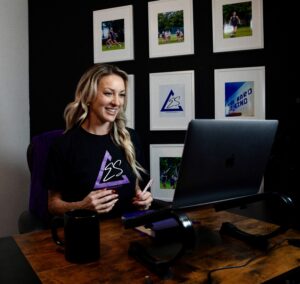
So I totally recommend the Post and Ghost method to save you time on social and to save your mental health so you don’t find yourself caught in an argument for hours on end.
I choose to be productive and focus on the people who really need me – family, friends, and my clients.
TikTok and Instagram
TikTok is like going to the zoo: you observe a bunch of animals.
TikTok is like going to the zoo: you observe a bunch of animals. Share on XIt’s anything goes on TikTok. I actually don’t have one, and never will. It’s far too distracting, and for the still developing brains of our young girls, I get very concerned.
For starters, there’s an overwhelming amount of lifestyle and beauty influencers who young girls follow, and they see these women as role models.
They live the high life, do all the Sephora hauls, go on all the shopping sprees, have the most extensive skincare routines, have “perfect” bodies, travel to the most exotic of places, and spend their days at med spas getting more lip filler. It becomes an unending abyss of Keeping up with the Jones’s.
Or, girls see all their friends making their D1 college commitment posts, and they’re depressed because they haven’t had any colleges reach out. Not one.
Or, they see their friends #ontheirgrind with #nodaysoff, and they feel pressured to train harder, further risking overuse injury and burnout.
Or as a parent, maybe you see other parents’ daughters on the best teams, and feel your daughter got screwed over by politics.
Whether it’s TikTok or Instagram reels, comparison is always lurking in everyone’s minds.
On these platforms, you’re reminded that you’re never pretty enough, rich enough, talented enough, athletic enough, fit enough, lean enough, or lucky enough to be like some of these people.
And the worst part of all of this: young girls believe these are the TRUE lives of these people, when it’s all smoke and mirrors.
Here’s an important reminder: be careful who you’re jealous of online because you don’t know what problems they face offline.
Be careful who you're jealous of online because you don't
know what problems they face offline. Share on X
Some of these influencers are broke and lying about their wealth. Some of them live way above their means. Some of these influencers Facetune every photo and don’t really have clear skin. Some of these influencers use a body editing app to have abs and a curvy waist. Some of these influencers are so painfully insecure and constantly need validation from their followers. Some of these influencers feel pressured to constantly post their day-to-day and actually resent it. Some of these influencers bought all of their followers, and are acting bigger than they actually are.
It’s as if young girls are living in a warped reality of what real life actually is.

Real life is human friends, not Snapchat strangers. Real life is hardship, not highlight reels. Real life is discipline, not constant vacation. Real life is in person connection, not follower validation.
Real life is human friends, not Snapchat strangers. Real life is hardship, not highlight reels. Real life is discipline, not constant vacation. Real life is in person connection, not follower validation. Share on X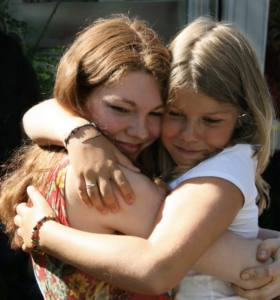
My Relationship with Social Media Now
Like you, I’ve been sucked into the comparison in the past, especially when I was in my 20s. With so many friends and their adventures to keep up with online, I too have felt like a failure.
Seeing them go to Coachella, or Bali, or to South Africa, or have a $250,000 wedding, or buy their first house, or get a golden retriever, or give birth to twins, or have seemingly happy families, or have the perfect Christmas card with everyone in matching flannel pjs, it’s just A LOT.
Of course, you’re happy for your friends, but us humans will always have that comparison in the back of our minds, thinking everyone else’s lives have something better.
So over the years, I’ve taken a step back from Instagram and utilize my Post and Ghost method. I wanted to go back to why I began social media in the first place: to educate about female athlete training. To be a creator, rather than consumer.
My main use for Instagram is to post new research, a new podcast, or a new blog so my followers can stay up to date. Just like Twitter, I no longer micromanage the comment section. It’s a full-time job. I’d rather get on a Zoom with someone to hash out any disagreements and maybe make a new friend.
Real life discussions > comment sections.
Another thing I’ve implemented is deleting Instagram from my iPhone Fridays-Mondays so I can be totally present with family on the weekends, and come Monday morning, I can focus on what I need to get started on for the week.
Personal Life Posts
As far as my personal life, I am posting less and less because I truly believe some things need to be kept intimate and private.
Sadly, a lot of influencers feel they have to over-share their lives so their followers see them as “auTheNtiC” and “ReLaTabLe.”
I think you can still be these things even if you’re staying in the lane that is your professional craft.
I don’t need to share my anniversary dinner out with my husband. I don’t need to share my entire pregnancy journey from start to finish, and document the delivery in the hospital. Or after the delivery of the baby, when it’s just my husband and I, sharing the most intimate part of our lives to date. My goodness. What has become of us we feel the need to post our newborn seconds after they arrive? Or, I even saw one mommy influencer post a picture of her bloody placenta for her 80,000 followers to see. We didn’t ask for this! You bet I unfollowed her after that one.
Casey Neistat, a famous YouTuber, even made a comment that family bloggers are the greatest evil of society. I don’t feel as strongly about it, but I get his point that sharing everything your family goes through is a violation of privacy and takes a certain level of narcissism.
And one day, you may regret sharing certain things that you can no longer take down because people do screen shot things.
Expounding further, I don’t need to share when I’m going through hardship and mental health struggles, let alone, record myself crying. Holy crap, why do influencers record themselves crying?
When going through rock bottom, the last thing I think of is to set up my tri-pod, get the right lighting, and record. I would rather hug my husband, cuddle my husky, and sob in moments like these.
I choose to keep most things of my life private, in my own reality, with my loved ones and closest friends. That’s true connection.
The online world isn’t real, so stick to what is real. Take a step back from social media. Immerse yourself into the present.
One step at a time, you’ll slowly gain control over your life again.
ABOUT THE AUTHOR
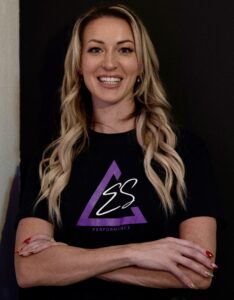
Erica Mulholland is a former college 3x All-American soccer player and now Hall of Famer from Johns Hopkins University. She holds a Master of Science in Exercise Science and has been helping female athletes of all sports with speed, agility, strength, power, and conditioning for over 13 years. She has worked with soccer, lacrosse, track, volleyball, softball, and basketball girls, and has inspired her athletes to strength train not just for sport, but for life.
Her athletes have gone on to play college sports at University of North Carolina, University of Maryland, Pittsburgh, University of Southern California, University of Detroit, Mercy, Northwestern, Eastern Carolina University, Georgetown, West Point, University of South Florida, University of Charleston, MIT, Johns Hopkins, Carnegie Mellon, Rutgers, Towson University, and have gone on to play for professional various clubs in Europe.
Of course, she is proud of her athletes who made it to the college and pro levels, but she is most proud of her girls who stick with being strong and healthy for a lifetime. The training she does is about getting into good habits young, so girls can take these tools with them even after sports end.
Need more personalized help from Erica? BOOK A CONSULT HERE
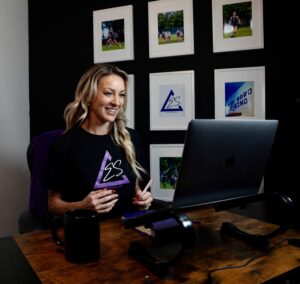
Interested in Remote Training for Female Athletes? BOOK A CONSULT HERE
Get Erica’s first book THE STRONG FEMALE ATHLETE
Get Erica’s second book FEMALE ATHLETE HIGH PERFORMANCE

Check out her podcast: The Strong Female Athlete


No Comments